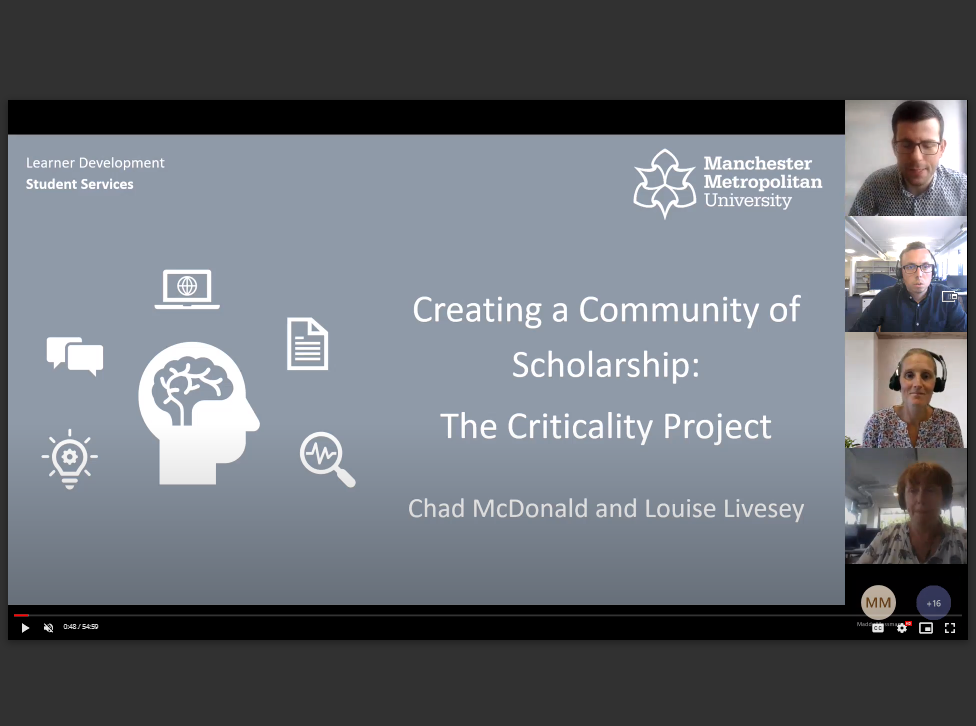Over the last twenty years, the field of learning development has been caught in circular debates about the value and effectiveness of subject-embedded versus extra-curricular or standalone activities. These debates have over-emphasised the need to consider each subject area in strict isolation. In this paper, we explore the benefits of encouraging an interdisciplinary approach to learning development. We discuss the creation of The Criticality Project, a unique six-week short course open to all students studying at Manchester Metropolitan University that has been running since 2019. Throughout this course, the concept of ‘criticality’ is interrogated through multiple perspectives to encourage students to explore various approaches to being a critical thinker, reader, and writer. Examples and case studies from different subject disciplines are used throughout each session, with emphasis placed on collaborative discussion and reflection between all participants.
The paper will open by exploring the creation, design, and structure of the course. It will then turn to consider how the course encourages the cross-pollination of ideas to build a sustainable learning community (see Wenger’s Community of Practice Theory). Specific consideration will be given to how the course blends digital and classroom-based tools, drawing on example activities from the course itself. We will draw on students’ feedback provided in anonymous course surveys alongside ad hoc feedback shared with the teaching team. Students are often told that they are living in an interconnected and collaborative world, and this paper suggests one approach to encourage the development of a community of scholarship that challenges disciplinary silos to encourage students’ critical thinking.



Reviews
There are no reviews yet.